Are You Over-Conditioning Your Hair?
Because when it comes to moisture, there is only so much your tresses can take.
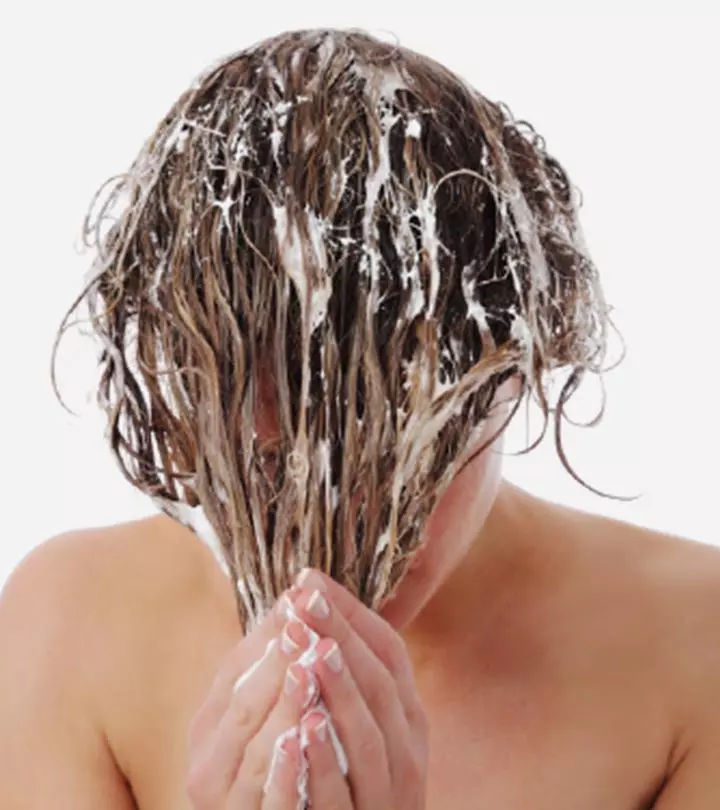
Image: Shutterstock
Using too much conditioner on your locks may cause more damage than good. Over-conditioning your hair can make it dry, brittle, unmanageable, greasy, and limp. However, you can easily solve this issue by limiting the amount of hair conditioner you use and curbing the daily usage of other styling products. This article includes steps about how to condition your hair properly and some helpful hair tips to fix any damage caused by over-conditioning. If you are not sure whether you overuse your conditioner, scroll down to know more!
In This Article
What Is The Use Of Hair Conditioners?

Conditioner is mainly used for moisturizing, smoothening, and detangling the hair. It provides nourishment, reduces frizz, and strengthens your hair while coating the hair shafts with a protective seal to improve their texture (1). This layer is what gives your tresses the shine and texture that is indicative of healthy hair. Also, conditioner makes your hair softer and easier to manage.
Hair treatment with conditioners can add moisture and make your hair silky and soft. But, how does it work on your hair? Let’s find out this in the next section!
 Quick Tip
Quick TipKey Takeaways
- Conditioners moisturize, replenish, and detangle hair, reduce frizz, fortify tresses, and coat hair strands to improve texture and shine.
- Conditioners coat the hair, sealing the nutrients and keeping out the pollutants – and this helps prevent split ends and breakage.
- However, over-conditioning hair leaves each hair shaft heavily coated, making it difficult for any other products to penetrate the hair cuticle and work effectively.
- You can tell you are over-conditioning your hair when your hair looks greasy and limp, lays flat, and is difficult to manage and style.
How Does A Conditioner Work?
A conditioner is mainly used to protect your hair and give it some added moisture. It creates a layer on the hair shafts and helps to nourish and hydrate your mane. Conditioners have a positive charge that binds to negatively charged hair, especially damaged locks. This reduces static, smooths cuticles (the outermost layer of the hair), and lowers friction, making your hair shinier and easier to comb. They also temporarily seal split ends (2).
Protein-based conditioners help repair hair damage, especially split ends. Hair damage removes cuticle scales, making hair weak and prone to breakage. These conditioners contain small protein fragments that penetrate the hair, bind to keratin, and restore lost proteins, strengthening the hair and preventing further damage (1).
Every time you apply conditioner after shampooing your hair, a layer forms on the hair. As this layer keeps building up, your hair’s ability to absorb and react to other products reduces. This, in turn, helps protect the hair shafts from damage.
But, putting too much conditioner on your hair can make it limp, sticky, and unmanageable. So, what is over-conditioning? Let’s find out more in detail about this in the following section.
What Is Over-Conditioning?
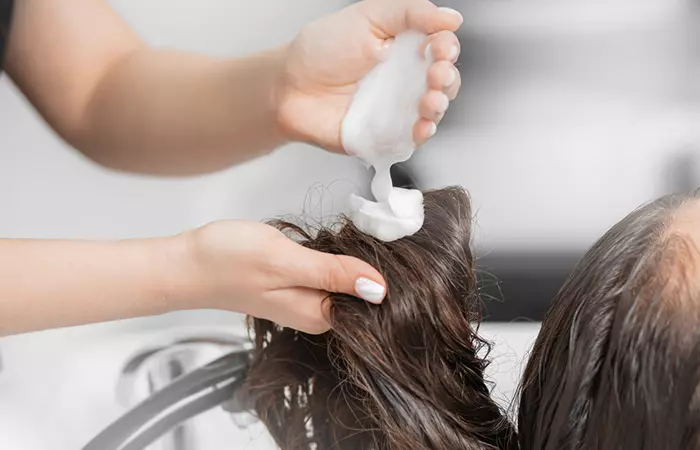
When you over-condition your hair, each cuticle is heavily coated and adds more than the required amount of moisture to your hair. Due to this, other hair products – such as hair oils and serum – cannot penetrate your hair cuticle and work effectively. Furthermore, your hair becomes too soft and loses its volume.
Remember that you are coating the hair shafts with one extra layer of product each time you use a hair conditioner. So avoid using a conditioner too much. Over-conditioning can lead to product buildup, especially from nonsoluble silicones that coat the hair and settle under the cuticle (3). This buildup can make hair feel heavy, greasy, or limp and may require strong sulfate shampoos to remove. If not properly cleansed, it can also prevent moisture and nutrients from reaching the hair shaft, leading to dullness and potential scalp issues like oiliness or irritation.
A study found that excessive use of hair conditioners may contribute to scalp sensitivity. Researchers examined 133 women, dividing them into groups based on their scalp sensitivity. They discovered that those with sensitive scalps used significantly more conditioner than those without sensitivity. Itchiness was the most common symptom, affecting 89% of people with a sensitive scalp (4).
Using too much conditioner and leaving it on your hair for too long, using a conditioner that is not suitable for your hair type, not washing the conditioner out of your hair properly, and conditioning your hair too frequently are some ways of over-conditioning. Furthermore, using styling products and moisturizing treatments in addition to a conditioner is another way of over-conditioning your hair.
You can easily notice when you put excess conditioner on your hair. Following are the signs that you are over-conditioning your hair. Read on!
Signs That You Are Over-Conditioning Your Hair
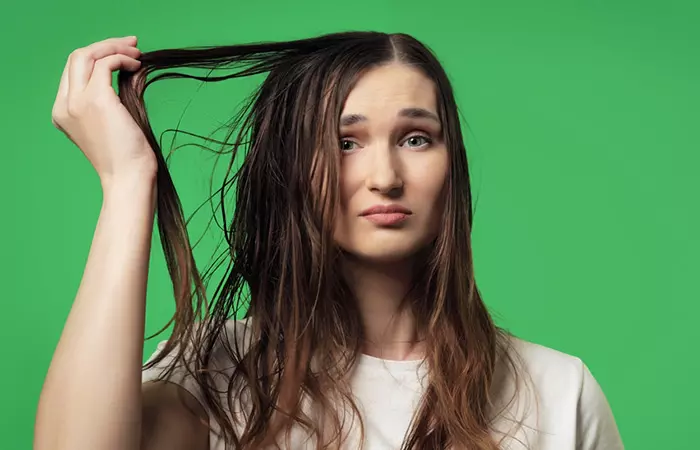
If you have used too much conditioner, you will soon start noticing signs that are easy to spot. Here are some of the most common signs that your hair has been over-conditioned.
- Your hair feels limp when you put too much conditioner on your hair. As over-conditioning adds too much moisture to the locks, your hair becomes very soft, looks sticky, and loses its natural volume. Also, it will look thin and feel heavy due to a lack of volume.
- If you are investing a lot of time in styling your hair then over-conditioning may be one of the reasons for it. Your hair will be difficult to manage and style as it is extremely soft and greasy. If you have curly hair and you applied too much conditioner to it, it will lose its bounce and will not stay in place. You can observe difficulty in styling updo hairstyles due to over-conditioning. Also, if you do an updo hairstyle, the hair will slide off from under the pins.
- Over-conditioning also makes your hair extremely stiff, which makes it less manageable and difficult to style.
- One main advantage of using a hair conditioner is that it makes your hair soft and shiny. However, if you are using more of it, your hair will become super glossy. This, in turn, makes your hair sticky and uncomfortable.
- Greasiness is the most common sign of over-conditioned hair. Excess use of hairstyling and conditioning products can make your hair oily, greasy, and dirty.
- Over-conditioning also makes your hair on top look super flat and soft. The super-soft roots are not able to hold volume for a long time. Hence, minimize the quantity of the conditioner that you use on your hair to make it lustrous.
Dorothy, a blogger, recalled the time when she used too much conditioner in her hair as a kid. Though her hair initially felt soft and silky when wet, her mother told her that her hair would turn crusty if she did not properly wash it out. She writes, “Indeed, it was crusty and not unlike baked cheese on top of warm lasagna (i).”
So, can going overboard with conditioner lead to hair loss? Hang tight for the scoop in the next section!
Can Over Conditioning Cause Hair Loss?
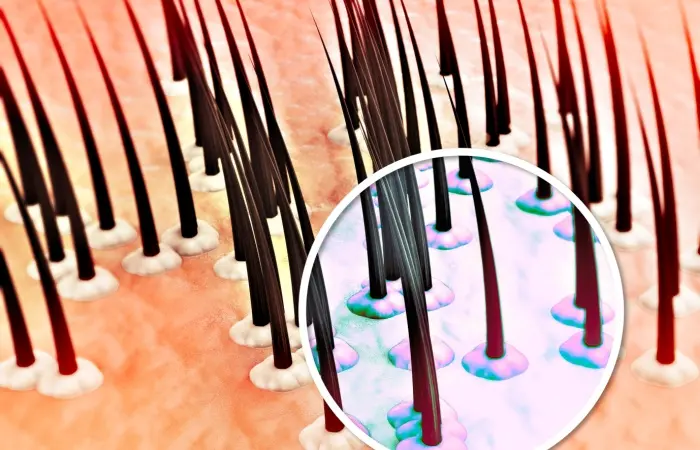
Excessive conditioning and product buildup may clog hair follicles, leading to hair loss in some cases (3) (5). While there isn’t concrete scientific evidence, some hair care professionals believe that over-conditioning, especially with heavy or greasy products, might obstruct and choke the hair follicles, contributing to hair thinning and loss. Excessive use of hair products can trigger scalp inflammation with symptoms like itching, redness, and irritation (6). The preservatives in hair conditioners can even cause scalp contact dermatitis (7). These, if left untreated, may lead to hair loss.
However, it’s important to note that various factors, including genetics, diet, and overall hair care practices, play significant roles in hair health. Moreover, over-conditioning may also make the hair brittle and cause hair fall. Therefore, it’s advisable to maintain a balanced hair care routine and consult with a dermatologist for personalized advice if experiencing severe hair loss.
You should condition your hair properly to avoid super sticky and oily hair. Check out the next section to understand the steps to condition your hair the right way.
How To Properly Condition Your Hair
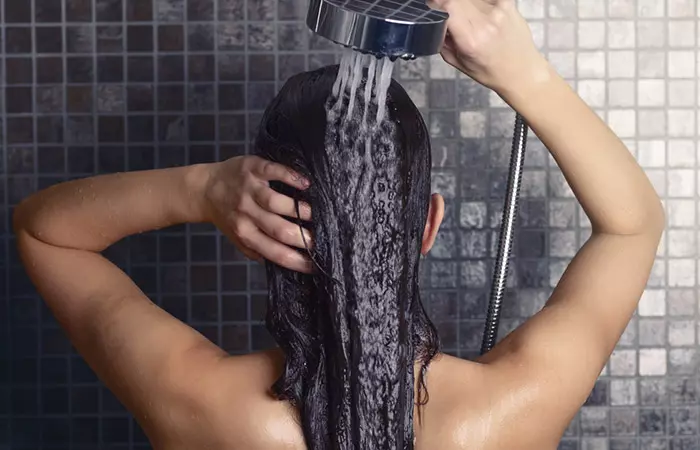
- Condition your hair every time you wash it.
- Make sure you do not leave the conditioner on your hair for more than a minute or two. Leaving it on your hair for too long can make it oily and weigh down.
- Use a lightweight conditioner if you condition often. This helps prevent product buildup and keeps your hair healthy and manageable. A lighter formula won’t weigh your hair down andkeep it fresh and clean.
- Distribute the conditioner evenly throughout your hair. Also, avoid putting the conditioner on your scalp.
- Apply conditioner only from the mid-length to the tips of your hair. Your roots don’t need any conditioner other than natural sebum (natural oil produced by the scalp).
Conditioning is an essential part of your everyday hair care routine, and that’s why understanding how to use conditioner properly is crucial. It’s because we may not often understand when we over-condition our hair unknowingly, which puts its health at risk. Learn more about it in the next section.
 Quick Tip
Quick TipHow To Avoid Over-Conditioning Your Hair
To prevent over-conditioning your hair, it is essential to use the right quantity of conditioner and rinse it out thoroughly. Introducing a clarifying shampoo or scalp scrub into your regular hair care routine will help to stop product build-up. Conditioning your hair is a crucial step to get voluminous and healthy hair. However, you should do it the proper way to avoid oily and flat hair.
- Try to avoid conditioning too often and do not leave it on your hair for a long time.
- Wash out the conditioner thoroughly with cool water. This will help to wash off any residues and product build-up from the hair. It will also give you shiny, healthy hair.
- Avoid using a leave-in hair conditioner after using a rinse-off conditioner.
Another important thing to remember is to avoid using too many hair styling products often as it will only weigh your hair down and make it even greasier.
Have you already over-conditioned your hair and want to fix it? Don’t worry! Here are some ways to fix over-conditioned hair.
Ways To Fix Over-Conditioned Hair
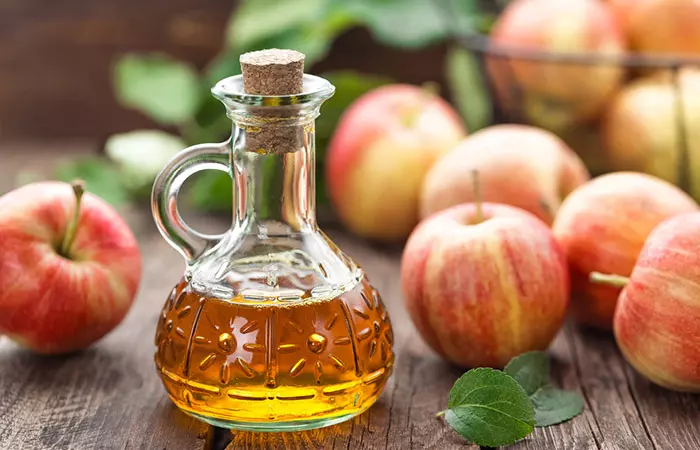
- Shampooing your hair properly to remove excess conditioner on your hair or using a dry shampoo exactly where you can find the greasy spots on your hair can fix your problem. You may also use a DIY dry shampoo in case you want to avoid commercial ones.
- Rinse your hair with a 1:2 concoction of apple cider vinegar and water once a month. (This means 1 part apple cider vinegar and two parts water.)
- Consider using a clarifying shampoo once a month. This helps remove excess buildup from conditioners and styling products, giving your hair a fresh start. It ensures your hair stays light and free from residue.
- Over-conditioned hair looks limp, and using protein treatments can add volume back to your hair and make your locks stronger. But, make sure not to use these treatments too often.
- Limit the use of styling and leave-in hair products to get the desired results.
Infographic: Easy Steps To Treat Your Over-Conditioned Hair
Often, the key to beautiful hair is using moisturizing hair products. These products can, however, accumulate on your hair and leave it dull, greasy, and difficult to maintain. Over-conditioned hair may occasionally appear oily at the roots and unruly at the ends. Fortunately, simple routine adjustments will help you salvage your bad hair day and maintain hair health.
Read the infographic below for some simple strategies to treat your over-conditioned hair.
Some thing wrong with infographic shortcode. please verify shortcode syntax
Conclusion
Conditioning is the best part of any hair routine to maintain healthy and soft hair. But over-conditioning your hair makes it flat and difficult to style. It may also lead to product buildup, clogging hair follicles, and potentially causing hair loss. Therefore, make sure you do not overuse the conditioner and rinse it off thoroughly with cool water. You can prevent and fix over-conditioned hair by minimizing the use of hair conditioners and styling products and reducing how often you use deep conditioning treatments for hair maintenance.
Frequently Asked Questions
Can conditioners ruin your hair?
Dr. Michael May, MBBS, LRCP & MCRS, a hair transplant surgeon, says, “If not used properly, they can ruin the hair. It would be best to remember where to apply the hair conditioner. It should not be applied to the roots, but rather from the ends to the mid-length of the hair strands. Conditioning the roots may result in a greasy scalp and product buildup on the hair follicles. Taking care of the scalp and roots is critical because this is the environment in which the hair begins to develop.”
Is it OK to leave the conditioner in your hair overnight?
Krysta Biancone, a hair stylist, says, “While it is generally safe to sleep with conditioner in your hair, it is important to rinse out the excess before going to bed. Excessive amounts of conditioner can weigh down your hair and make it appear greasy and heavy. Additionally, if you are using a deep conditioner, it is important to follow the instructions on the product label carefully, or you could damage your hair.”
Why does conditioner make my hair frizzy?
Krysta explains, “Conditioners can also make your hair frizzy if you don’t use the right type or amount for your particular hair type. A light conditioner may be better suited for finer and thinner hair, while a deep conditioning mask may be beneficial for thicker and coarser hair. Additionally, it is important to avoid applying too much product, as this will leave a residue on your strands that will cause frizziness over time.”
Is it OK to condition your hair every day?
You can condition your hair daily, but it is not recommended as it may leave your tresses looking flat and weighed down.
How long should I leave the conditioner in my hair?
Regular conditioner should be left in the hair for 5 minutes and then washed off with cold water. Leave-in conditioner does not need to be washed off and can be left in hair until your next hair wash. A deep conditioner works best when left in the hair for 20 minutes.
What happens if you don’t wash out the conditioner?
Leaving regular conditioner in your hair for too long can lead to build-up and clog the follicles, which may cause hair loss and hair damage.
Is it OK to leave conditioner in your hair overnight?
No. Don’t leave regular conditioner in your hair overnight as it can cause build-up on your hair and scalp.
What does conditioner do?
Conditioner makes your hair softer and simpler to handle. Additionally, it shields the hair shafts from harm, as most shampoos include harsh chemicals that damage hair follicles. But overusing conditioners can always bring out adverse effects like those mentioned above. So, using conditioners the right way is essential. Further, if you have fine or oily hair, using a conditioner before shampoo can help improve bounce and enhance moisture retention.
Illustration: How To Prevent And Fix Over-Conditioned Hair?
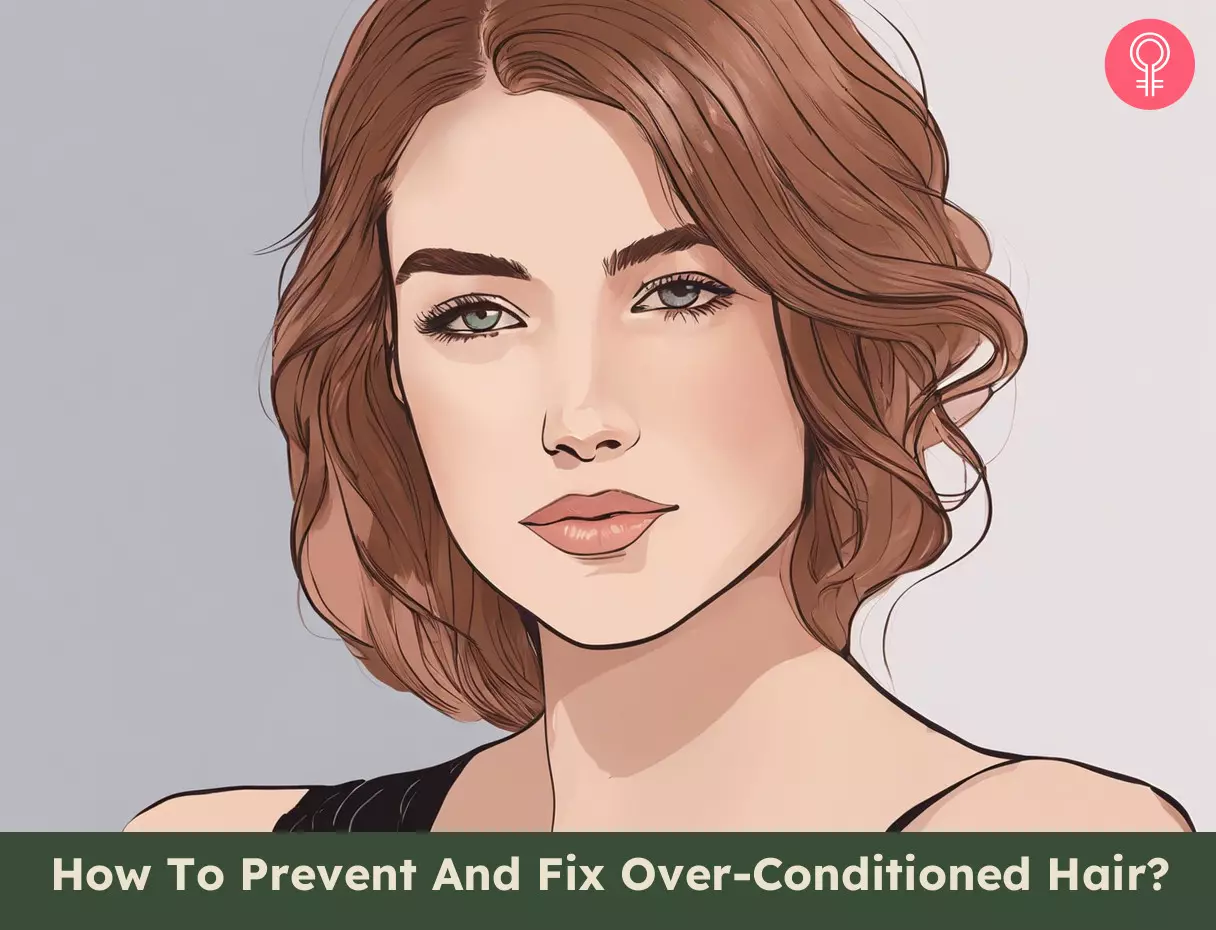
Image: Stable Diffusion/StyleCraze Design Team
Too much conditioning can leave your hair feeling heavy and greasy. Check out the video below to learn how to keep your hair healthy and beautiful!
Personal Experience: Source
StyleCraze's articles are interwoven with authentic personal narratives that provide depth and resonance to our content. Below are the sources of the personal accounts referenced in this article.
i. On Dead Ends, Haircuts, and Dull Scissors,
https://allicandoiskeepbreathing.wordpress.com/2014/08/
References
Articles on StyleCraze are backed by verified information from peer-reviewed and academic research papers, reputed organizations, research institutions, and medical associations to ensure accuracy and relevance. Read our editorial policy to learn more.
- On Hair Care Physicochemistry: From Structure and Degradation to Novel Biobased Conditioning Agents
https://pmc.ncbi.nlm.nih.gov/articles/PMC9921463/ - Shampoo and Conditioners: What a Dermatologist Should Know?
https://pmc.ncbi.nlm.nih.gov/articles/PMC4458934/ - Pro and Contra of Cleansing Conditioners
https://pmc.ncbi.nlm.nih.gov/articles/PMC6489037/ - Sensitive Scalp: A Possible Association With The Use Of Hair Conditioners
https://pmc.ncbi.nlm.nih.gov/articles/PMC8005630/ - Hair Loss: Common Causes and Treatment
https://pubmed.ncbi.nlm.nih.gov/28925637/ - Scalp Pruritus: Review of the Pathogenesis, Diagnosis, and Management
https://pmc.ncbi.nlm.nih.gov/articles/PMC6350598/ - Scalp Itch: A Systematic Review
https://pmc.ncbi.nlm.nih.gov/articles/PMC6120392/
Read full bio of Dr. Nithya Raghunath
- Krysta Biancone is a hair stylist with over 13 years of experience in blonde highlights, hair extensions, and blonde coloring. She aims to make every client feel their absolute best.
 Krysta Biancone is a hair stylist with over 13 years of experience in blonde highlights, hair extensions, and blonde coloring. She aims to make every client feel their absolute best.
Krysta Biancone is a hair stylist with over 13 years of experience in blonde highlights, hair extensions, and blonde coloring. She aims to make every client feel their absolute best. - Dr. Michael May, MD, is the Medical Director and Principal Surgeon of the Wimpole Clinic in Harley Street, London. He has 25 years of experience in the field of hair transplant surgery and has completed over 10,000 hair transplant procedures. He is the current president of the European Society of Hair Restoration Surgery, a registered member of The Trichological Society, and a Diplomat of Hair Restoration Surgery (ABHRS).
 Dr. Michael May, MD, is the Medical Director and Principal Surgeon of the Wimpole Clinic in Harley Street, London. He has 25 years of experience in the field of hair transplant surgery and has completed over 10,000 hair transplant procedures. He is the current president of the European Society of Hair Restoration Surgery, a registered member of The Trichological Society, and a Diplomat of Hair Restoration Surgery (ABHRS).
Dr. Michael May, MD, is the Medical Director and Principal Surgeon of the Wimpole Clinic in Harley Street, London. He has 25 years of experience in the field of hair transplant surgery and has completed over 10,000 hair transplant procedures. He is the current president of the European Society of Hair Restoration Surgery, a registered member of The Trichological Society, and a Diplomat of Hair Restoration Surgery (ABHRS).
Read full bio of Arshiya Syeda
Read full bio of Ramona Sinha
Read full bio of Monomita Chakraborty






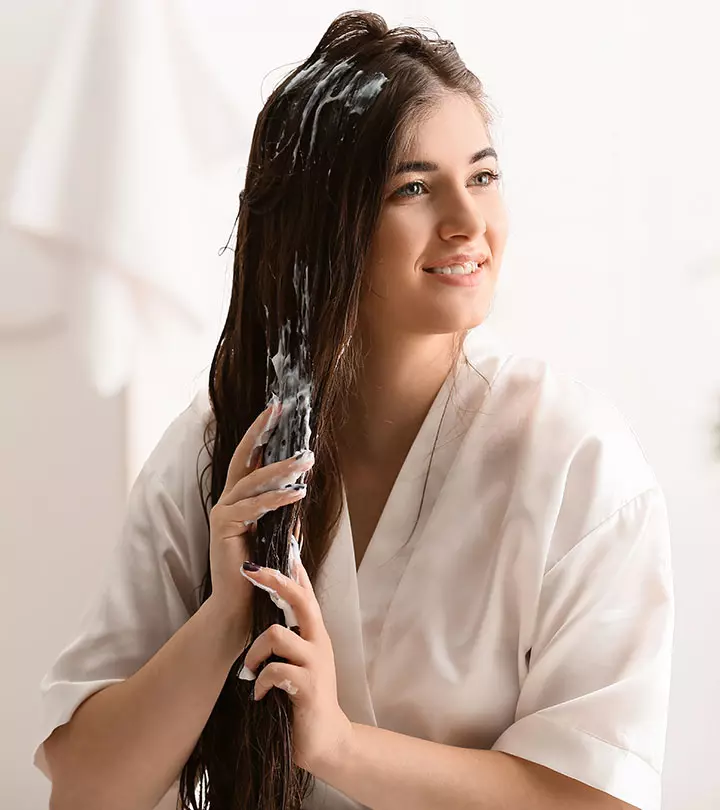
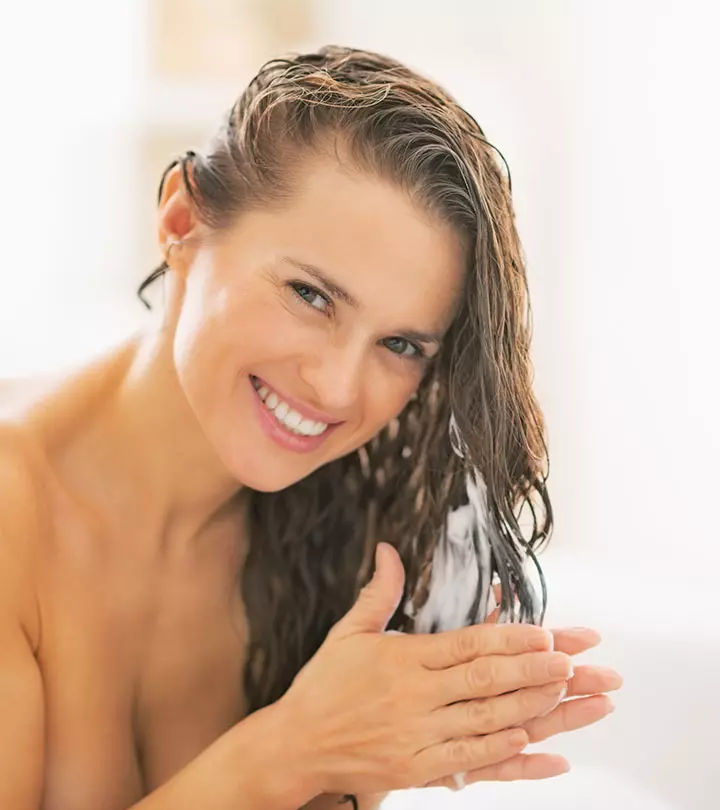
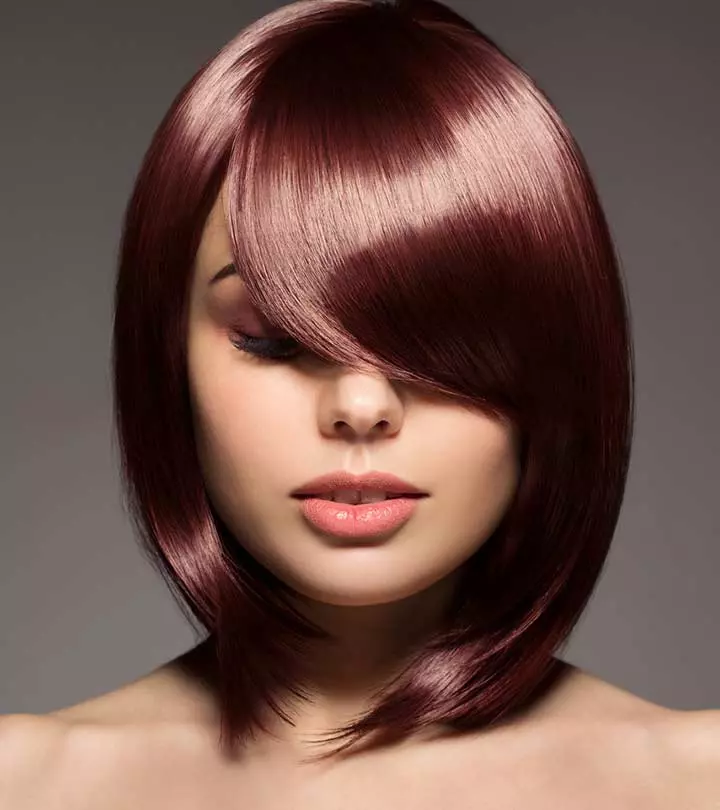

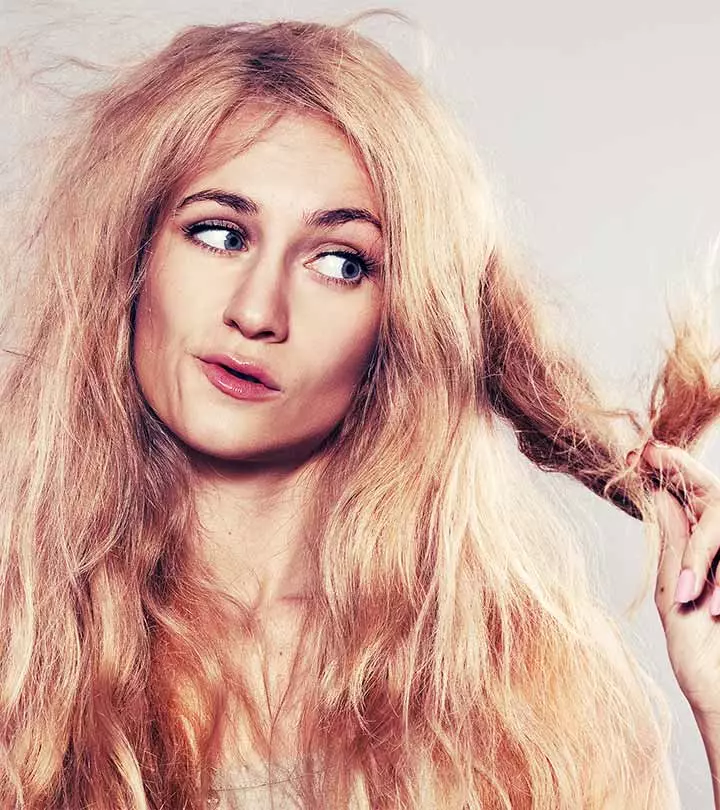


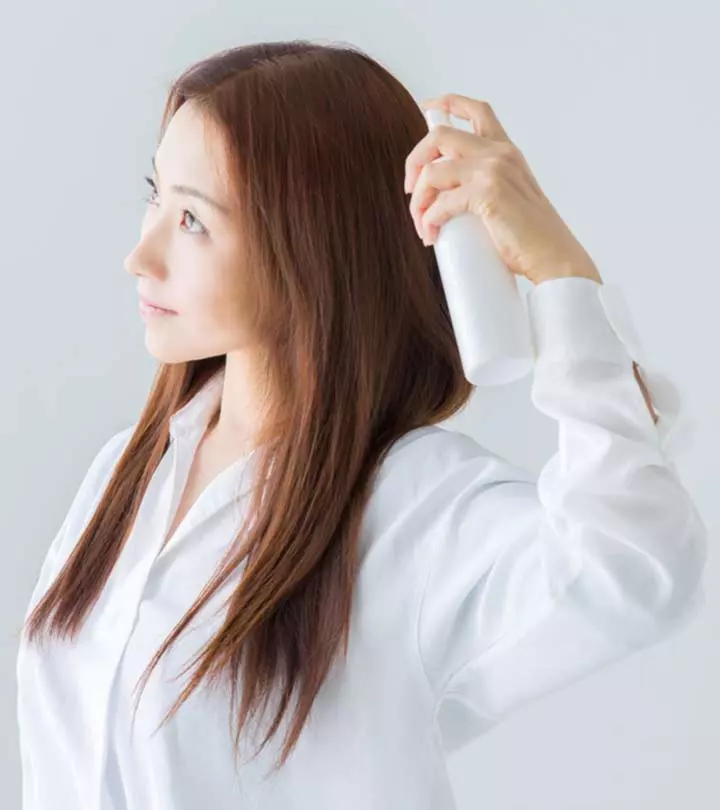
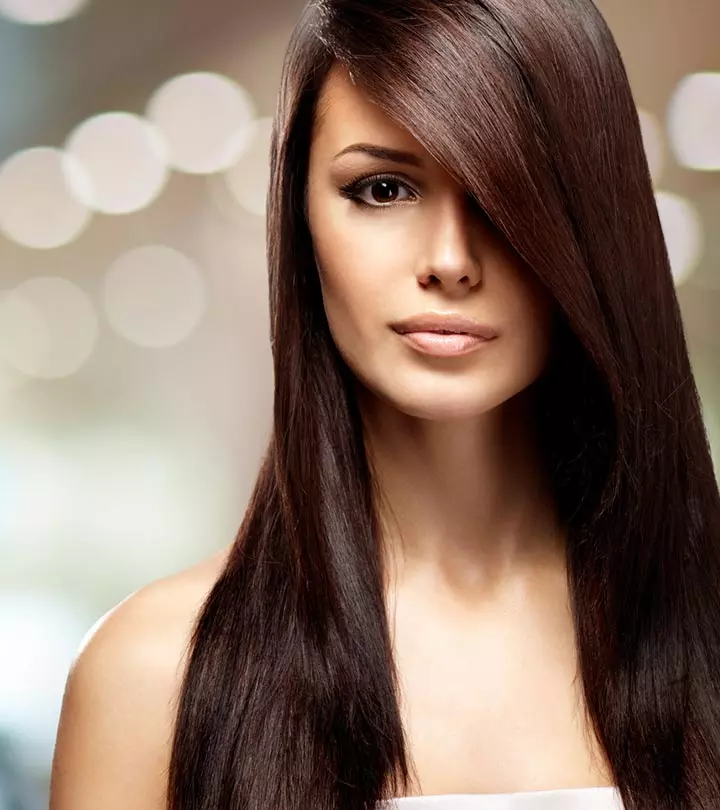
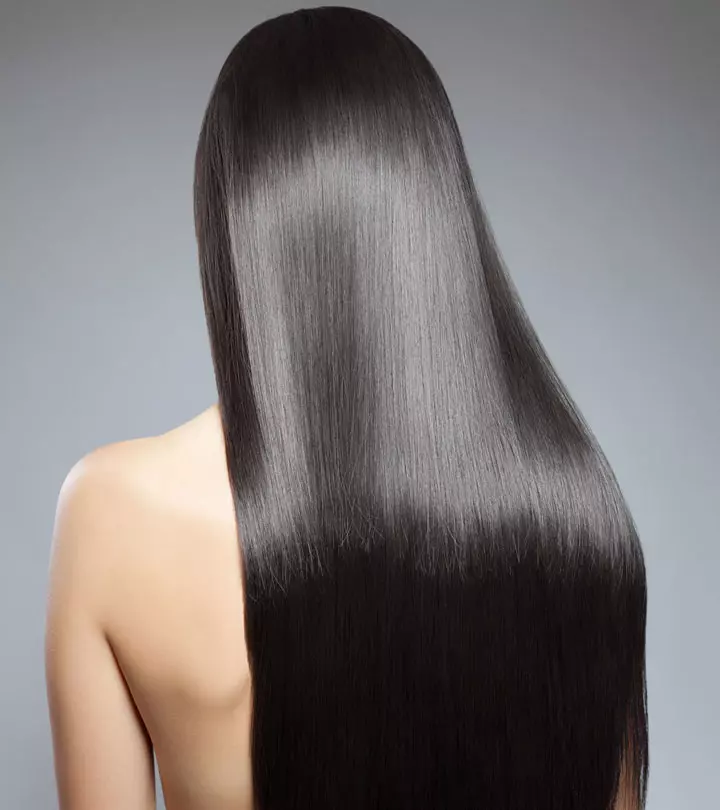
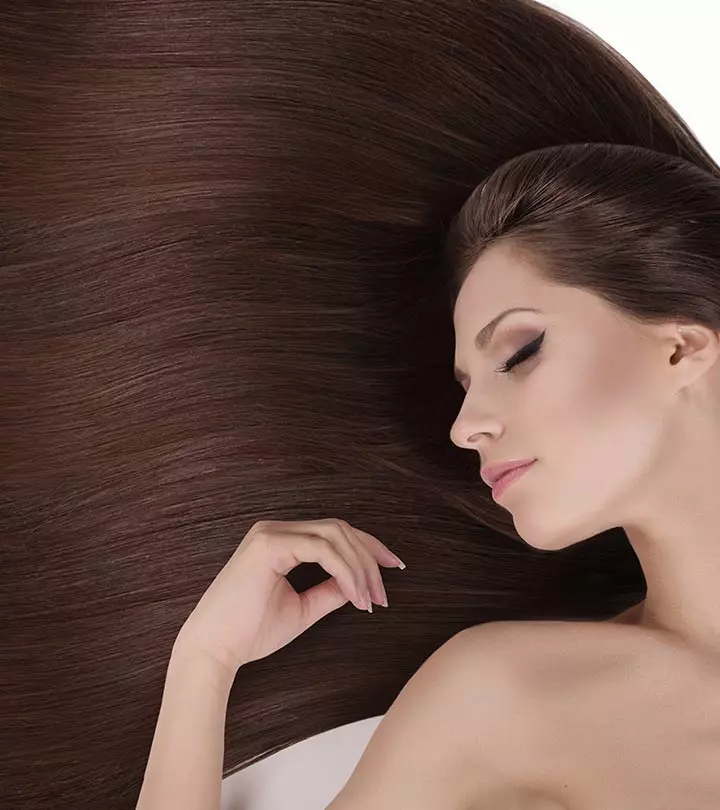

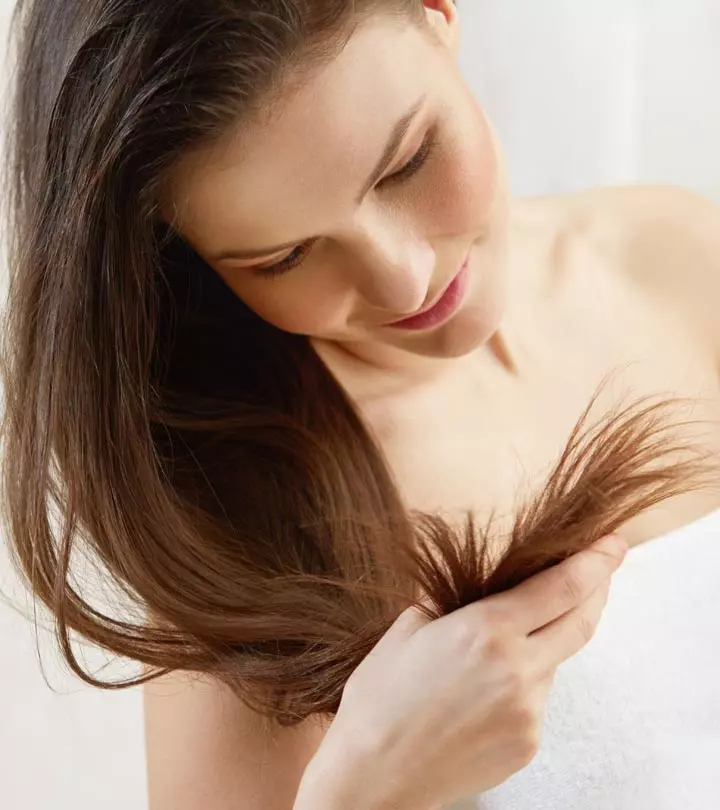
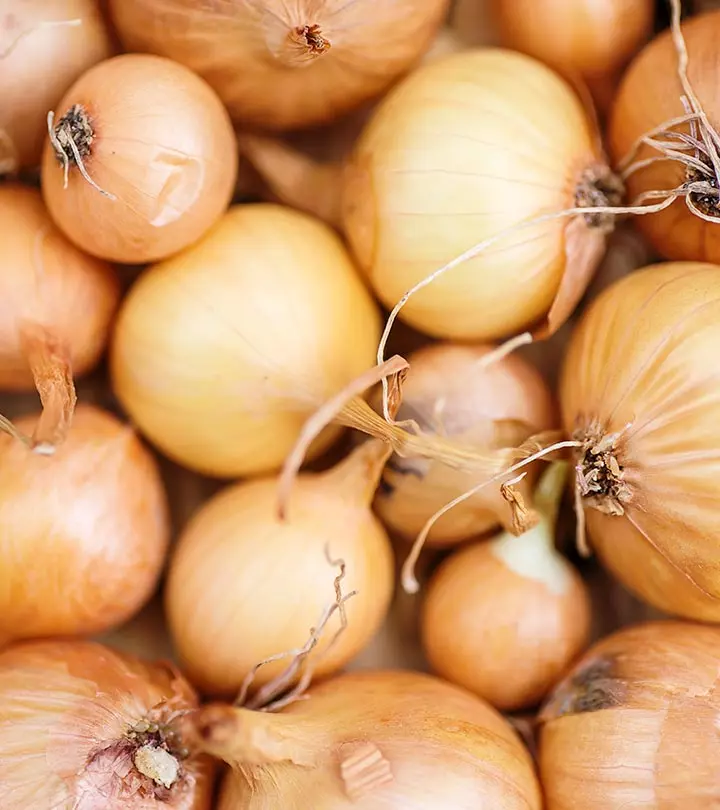

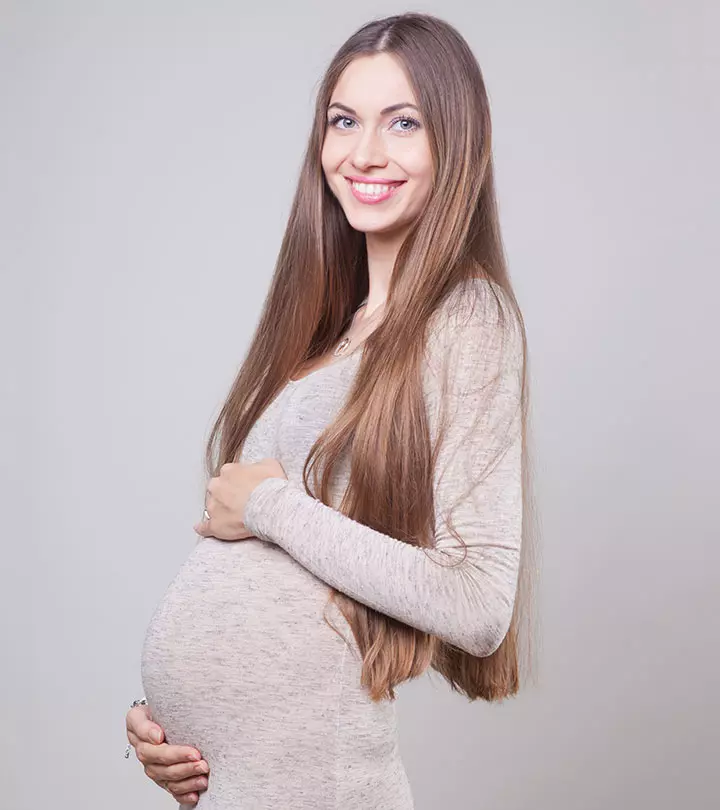
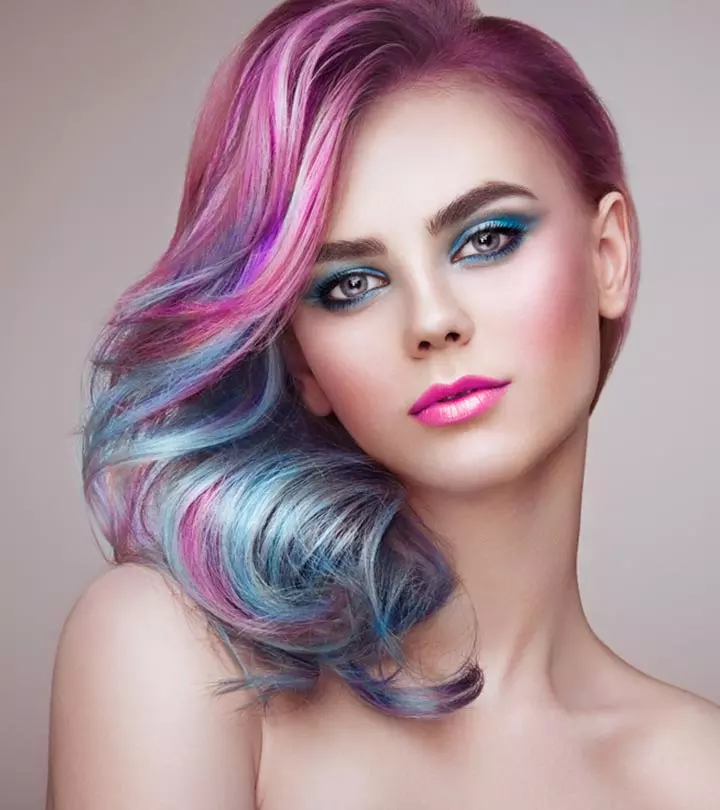
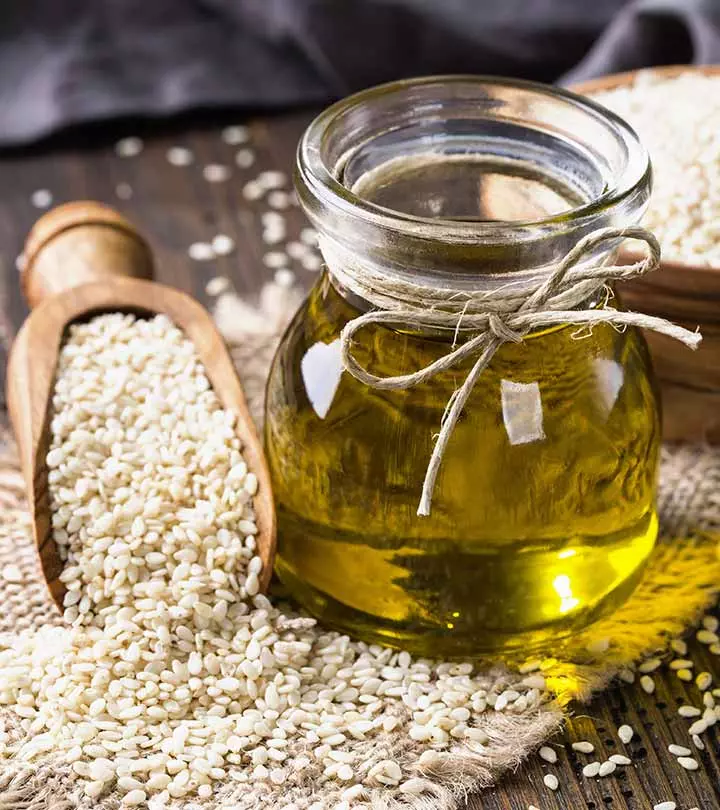
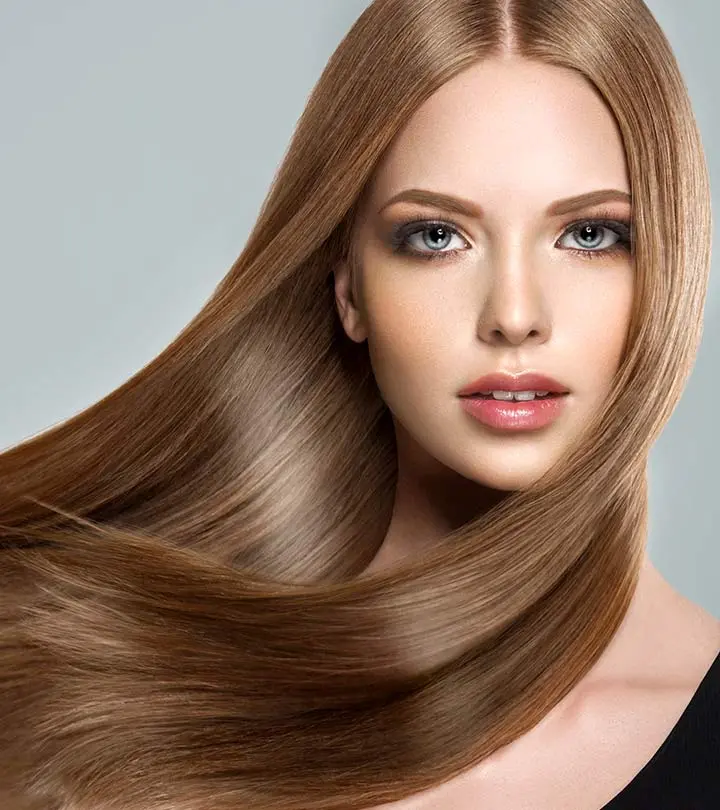
Community Experiences
Join the conversation and become a part of our empowering community! Share your stories, experiences, and insights to connect with other beauty, lifestyle, and health enthusiasts.